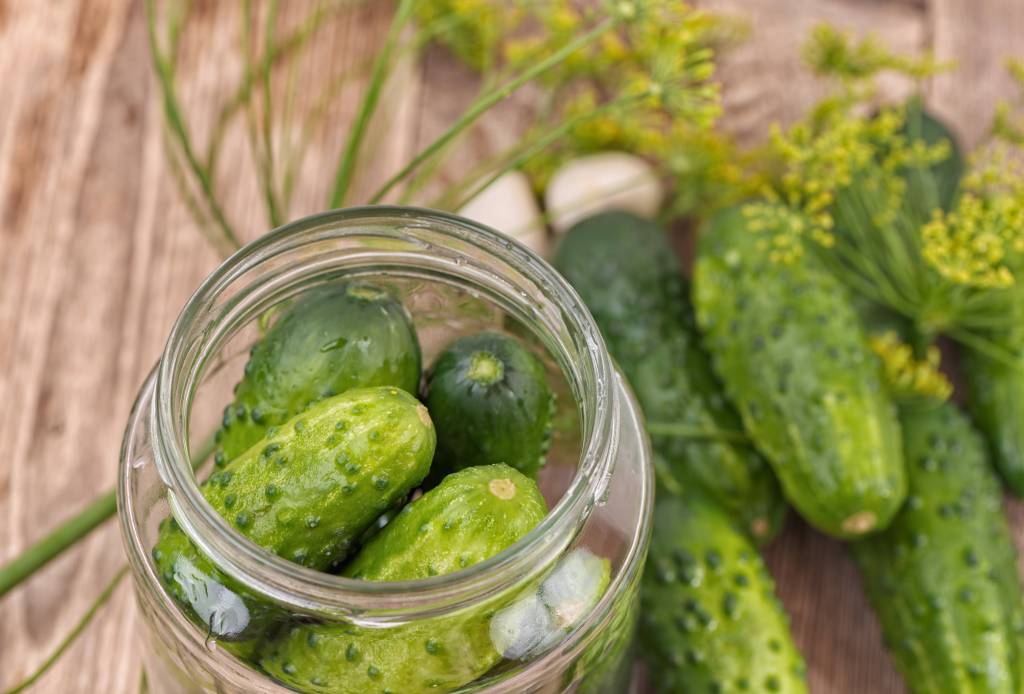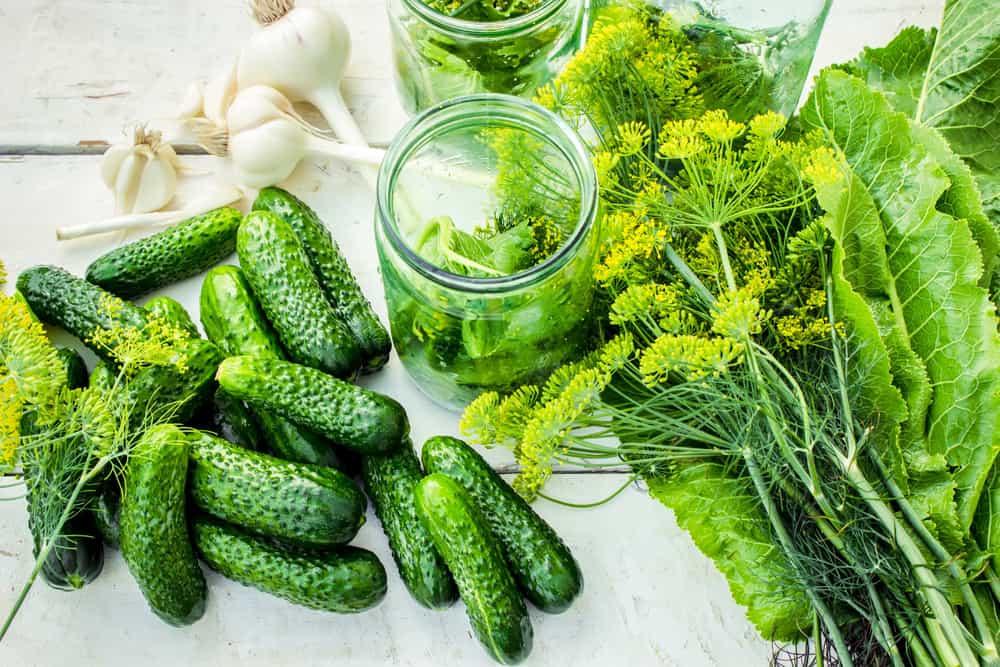Let me tell you something important right off the bat—dog owners everywhere are asking, "Can dogs eat pickles?" Well, the answer isn’t as simple as a yes or no. There’s a lot more to it than meets the eye, so if you’re here looking for clarity, you’re in the right place. In this article, we’ll dive deep into the world of pickles and pups, breaking down the facts, risks, and tips to keep your furry friend safe and healthy.
Pickles might seem harmless enough—after all, they’re just cucumbers in brine, right? But when it comes to our four-legged companions, even the most innocent-seeming snacks can have hidden dangers. As a responsible pet owner, it’s crucial to know exactly what’s safe for your dog and what isn’t.
So, grab a cup of coffee (or tea, if that’s your thing), and let’s get into the nitty-gritty of whether dogs can eat pickles. Spoiler alert: it’s not all sunshine and rainbows.
Read also:When Does Tj Maxx Restock The Ultimate Guide For Savvy Shoppers
Why Are People Asking "Can Dogs Eat Pickles?"
Here’s the deal: pickles are one of those foods that people either love or hate. The tangy, salty goodness is a favorite for many humans, but when it comes to dogs, the question becomes a lot more complicated. People ask this because they want to ensure their dogs aren’t exposed to anything harmful, and rightfully so. Dogs are curious creatures, and they’ll nibble on just about anything if given the chance.
Let’s break it down further. Pickles come in different varieties—sour pickles, sweet pickles, dill pickles, and even bread-and-butter pickles. Each type has its own set of ingredients, and some of these ingredients can be problematic for dogs. For example, the high salt content in pickles can lead to dehydration and other health issues in our canine friends.
Understanding the Risks of Pickles for Dogs
Now, let’s talk about the risks. When you think about pickles, you probably think of cucumbers soaked in a brine solution. That brine is where the trouble starts. It’s packed with salt, vinegar, and spices, and while those ingredients make pickles delicious for humans, they’re not so great for dogs.
High Sodium Content
Sodium overload is one of the biggest concerns when it comes to dogs eating pickles. Too much salt can cause dehydration, electrolyte imbalances, and even sodium ion poisoning in severe cases. Dogs aren’t built to handle the same levels of sodium that humans consume, so even a small amount of salty pickles can be harmful.
Spices and Additives
Beyond the salt, pickles often contain spices like garlic and onions, which are toxic to dogs. These ingredients can damage a dog’s red blood cells and lead to anemia. Additionally, some pickles are sweetened with sugar or artificial sweeteners like xylitol, which can be deadly for dogs.
Are Any Types of Pickles Safe for Dogs?
So, can dogs eat pickles? The short answer is maybe, but only under very specific circumstances. If you’re determined to share a pickle with your dog, here are a few things to consider:
Read also:Wwe Liv Morgan Rising Star And The Queen Of Resilience
- Plain, unsalted cucumbers are a much safer option than pickles.
- If you must give your dog a pickle, opt for a low-sodium variety without added spices or sugar.
- Always consult your veterinarian before introducing any new food to your dog’s diet.
Remember, just because a food isn’t immediately toxic doesn’t mean it’s healthy for your dog. Even small amounts of pickles can upset your dog’s stomach and lead to digestive issues.
What Happens if a Dog Eats Pickles?
Let’s say your dog accidentally got into the pickle jar—what should you do? First, don’t panic. Depending on the type and quantity of pickles consumed, your dog might experience mild symptoms like vomiting or diarrhea. However, if your dog consumed a large amount or a toxic variety, you need to act fast.
Signs of Pickle Toxicity in Dogs
Here are some common symptoms to watch out for:
- Excessive thirst or urination
- Vomiting
- Diarrhea
- Lethargy
- Loss of appetite
If your dog exhibits any of these symptoms, contact your veterinarian immediately. Time is of the essence when it comes to food toxicity in dogs.
Alternatives to Pickles for Dogs
Now that we’ve established pickles aren’t the best choice for dogs, let’s talk about some healthier alternatives. There are plenty of human foods that are safe and even beneficial for dogs. Here are a few options:
Fruits and Vegetables
Carrots, green beans, and apples (without seeds) are all great snacks for dogs. They’re nutritious, low in calories, and most dogs love them.
Plain Yogurt
Plain, unsweetened yogurt is an excellent source of probiotics, which can help improve your dog’s digestion. Just be sure to avoid yogurt with added sugar or artificial sweeteners.
Pumpkin
Canned pumpkin (not pumpkin pie filling) is a fantastic option for dogs with digestive issues. It’s rich in fiber and can help regulate your dog’s bowel movements.
Expert Advice on Feeding Human Foods to Dogs
As a responsible pet owner, it’s important to educate yourself on what human foods are safe for dogs. While some foods, like pickles, are best avoided, others can be a healthy addition to your dog’s diet. Always do your research and consult with your veterinarian before introducing any new food.
Here are a few tips to keep in mind:
- Start with small amounts to see how your dog reacts.
- Stick to plain, unseasoned foods.
- Avoid foods that are high in fat, sugar, or salt.
By following these guidelines, you can ensure your dog stays healthy and happy.
Can Dogs Eat Pickles? Final Verdict
After all the information we’ve covered, the final verdict is clear: dogs can eat pickles, but only in very limited quantities and under specific conditions. For most dogs, it’s safer to stick with healthier, dog-friendly snacks. Pickles are high in salt, sugar, and spices, all of which can be harmful to your furry friend.
So, the next time you’re enjoying a sandwich with a side of pickles, resist the urge to share with your dog. Instead, offer them a safe, nutritious treat that won’t put their health at risk.
Call to Action: Keep Your Dog Safe and Healthy
Now that you know the risks and benefits of feeding pickles to dogs, it’s time to take action. Share this article with other dog owners to help spread awareness about the dangers of certain human foods. And remember, if you ever have questions about your dog’s diet, don’t hesitate to consult your veterinarian.
Thanks for reading, and here’s to keeping our furry friends safe, healthy, and happy!
Table of Contents
- Why Are People Asking "Can Dogs Eat Pickles?"
- Understanding the Risks of Pickles for Dogs
- Are Any Types of Pickles Safe for Dogs?
- What Happens if a Dog Eats Pickles?
- Alternatives to Pickles for Dogs
- Expert Advice on Feeding Human Foods to Dogs
- Can Dogs Eat Pickles? Final Verdict
- Call to Action: Keep Your Dog Safe and Healthy
There you have it—a comprehensive guide to the question, "Can dogs eat pickles?" Remember, your dog’s health is your top priority, so always err on the side of caution when it comes to their diet. Stay informed, stay vigilant, and most importantly, spoil your pup with love and care!


